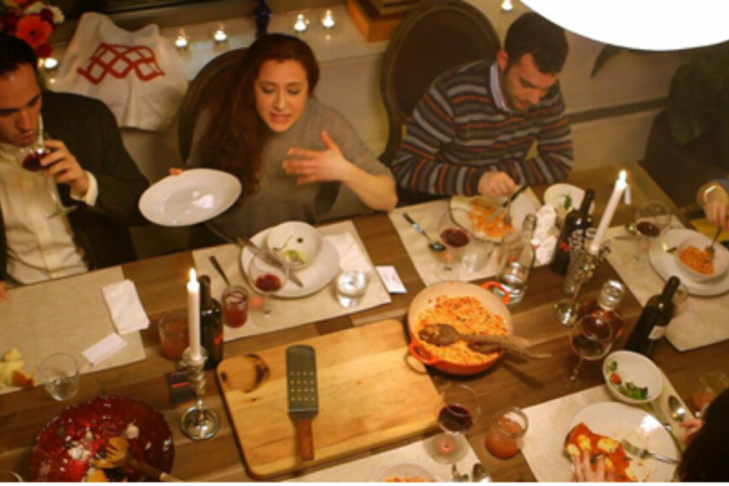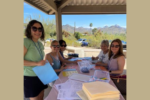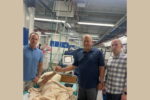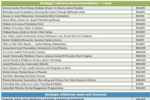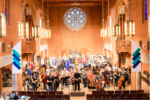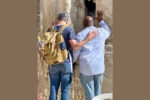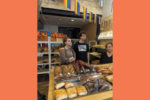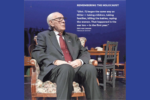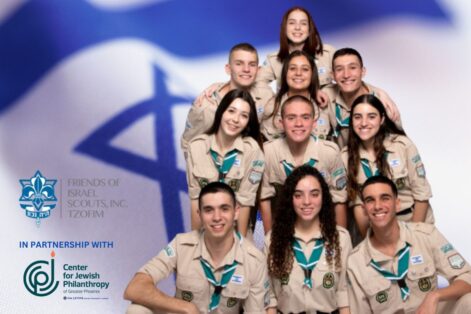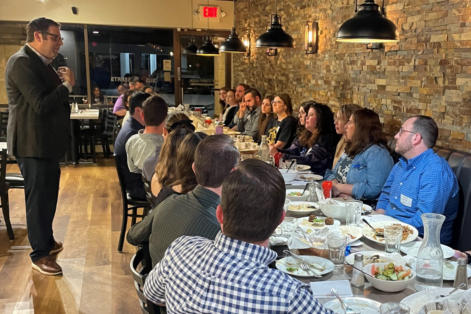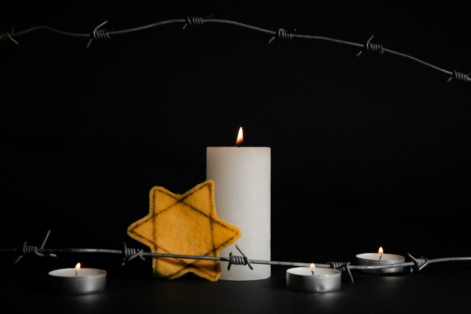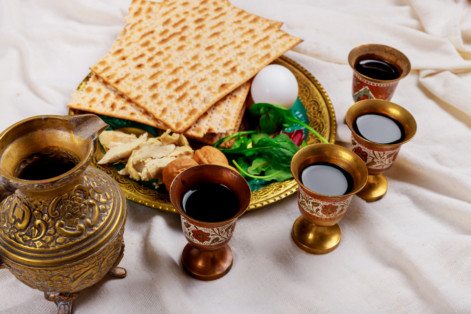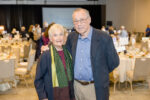After a serious accident sent Aleeza Kaplan to recuperate in her parents’ house in San Diego, she felt completely isolated, far from her home and friends in Phoenix.
“I was lonely, I was sad and I was hurting,” she told Jewish News.
When an old friend from Hillel reached out and invited her to Shabbat dinner, she quickly accepted, but giddiness turned to confusion when she discovered it was like no Shabbat she had been to before.
Instead of accepting the invitation by text or phone call, she used a website, OneTable.org.
“There’s no way this is real,” she told her friend. “What’s the catch? What’s the agenda?”
She soon found out the “agenda” was merely to share a Shabbat dinner with a group of young adults. Whatever happened next was up for grabs.
Kaplan overcame any sense of trepidation about using a website when these Shabbatot became her entry into San Diego’s Jewish community while she was laid up at her folks’. She’s home in Phoenix now, and as of Dec.5, she is OneTable’s first Phoenix Community Ambassador.
In cities with a relatively large Jewish young adult population, where there is demand for something like OneTable, the organization looks for people to provide dedicated resources that keep it independent of the national infrastructure, said Ely Benhamo, OneTable’s director of major gifts.
(Benhamo lives in Phoenix, where she works remotely for the national organization.)
“If a community has its own page on our platform and actual boots on the ground, then we’re really able to grow the community with more of a personal touch,” she said.
Locals Joshua and Brittany Simon committed to the creation of a Phoenix hub for OneTable and agreed to raise the money, which they did with the assistance of the Center for Jewish Philanthropy of Greater Phoenix (CJP).
In her new part-time position, Kaplan will establish partnerships in the community, review host applicants and all Shabbat dinners posted to the platform in Greater Phoenix. OneTable gives young adult Jews — between the ages of 21 and 39 — money to host a Shabbat dinner ($300 if it’s open to the public; $100 if it’s invitation only).
Additionally, Kaplan will serve as support staff, a kind of “Shabbat coach,” so to speak.
“She’ll be the connector, the coach, the relationship builder,” Benhamo said.
“It’s all DIY. It’s all peer led. OneTable doesn’t create the programs for them — we just give them the tools and resources to do that on their own.”
Madeline Dolgin first heard of OneTable in college in New York, and she attended a Shabbat dinner in Phoenix using the national hub before the pandemic. But it wasn’t until recently that she saw its real value: a tool for creating Jewish community.
Dolgin once worked at Hillel at Arizona State University, where she had easy access to a Jewish community on campus. Once she left and transitioned to more secular work, she investigated ways to continue her involvement with the Jewish community at large.
OneTable was appealing because of its very low barrier for entry.
“You literally just sign up online and register to be a host and they walk you through the platform,” she said.
“The funding piece was huge because I was still in my early career with a fairly small salary and to be able to host Shabbat dinner and host my friends — and afford to pay for all of their food — was hard,” she said.
And asking friends to pitch in? That was just too awkward, she said.
When she and her husband joined Congregation Kehillah in Cave Creek, Rabbi Bonnie Sharfman asked for their assistance in making young adults feel more welcome.
In addition to a hiking club and teaching Jewish education classes, the couple has committed to hosting a Shabbat dinner every month — OneTable became a natural resource.
“Our Shabbat dinners are filled up with an age group we call “post-college, pre-family,” Dolgin said.
For a young couple with no kids to send to Hebrew school, the synagogue might not seem the place to go for community. However, people this age still want something beyond just a social engagement with other singles, Dolgin said.
“I have a lot of Jewish friends but they all seemed very disparate, like they didn’t have a central hub or place where they all got together,” she said.
Her Shabbat dinners are now that place. What’s more is that her friends are becoming friends with one another and when she is invited to any get together, she sees many of the same faces from her Shabbat table. That’s been gratifying to watch over the last few months since she made her commitment.
“Young adults haven’t been catered to as well as maybe they could have. Hillel does a really incredible job and then you graduate and you think, ‘OK, what do I do now? And what does my Jewish identity look like?’ We’re starting to create something where those young adults can be introduced to the greater Jewish community and feel a part of it,” she said.
To learn more or sign up to host or attend a Shabbat dinner, visit OneTable Phoenix Shabbat dinner page.
This article appeared first on Jewish News.
This post has been contributed by a third party. The opinions, facts and any media content are presented solely by the author, and JewishPhoenix assumes no responsibility for them. MORE


